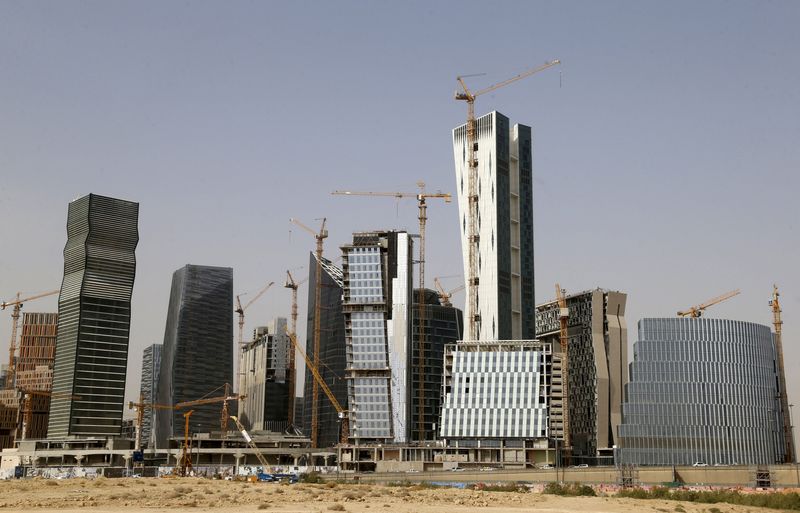By Rachna Uppal and Yousef Saba
DUBAI (Reuters) -The International Monetary Fund (IMF) expects GDP growth in Saudi Arabia to slow further from the currently forecast 1.9% to reflect the latest extension of oil production cuts, an IMF official said, even as non-oil growth is seen remaining strong.
Saudi Arabia's economy grew 8.7% last year on the back of high oil prices, allowing it to record its first budget surplus in almost a decade. But cuts to production this year and lower prices have hit oil revenues and will weigh on growth.
"Non-oil growth will remain as robust because this is driven by domestic demand and overall growth will be revised down to reflect the cut in oil production, but that growth will still remain positive," Amine Mati, the IMF's mission head for Saudi Arabia, told Reuters on Wednesday.
The IMF forecasts non-oil GDP growth at 4.9% this year.
The world's top oil exporter is also projected to swing to a fiscal deficit of 1.2% of GDP in 2023, from a surplus of 2.5% in 2022, the IMF said in its latest Article IV report.
The Saudi government has forecast a second consecutive budget surplus for this year, albeit narrower than in 2022.
Mati said that the fiscal deficit will now be closer to balance after accounting for the higher oil prices currently and the additional dividend payout from state oil giant Aramco (TADAWUL:2222), in which the Saudi government holds over 90%.
On Tuesday, Saudi Arabia and Russia said they would extend voluntary oil cuts to the end of the year, despite oil prices trending higher in the past few months and analyst expectations of tight supply in the fourth quarter, sending prices higher.
The IMF said the outlook for Saudi Arabia was positive and that risks remained balanced.
Government-led reforms and the growth of private investment in new sectors have supported non-oil economic growth in Saudi Arabia, a key element of Vision 2030, the kingdom's economic transformation plan overseen by Crown Prince Mohammed bin Salman.
The government is pouring hundreds of billions of dollars into Vision 2030 which aims to diversify the economy away from oil.
The IMF recommended maintaining the VAT rate at 15%, the highest among Gulf states, as well as energy subsidy reforms which should be accompanied by social programmes to limit the impact on vulnerable groups.
